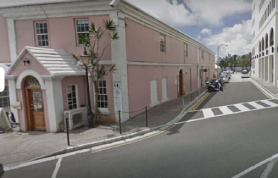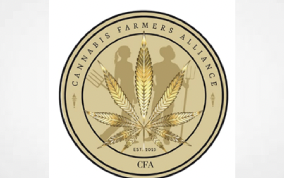Authored By: William F. McDevitt, Esq.
On July 19, 2018, Pennsylvania Auditor General Eugene DePasquale released a report on Regulating & Taxing Marijuana. The report advocates the legalization of adult use or recreational cannabis in the Commonwealth.
DePasquale’s position is based on an analysis of the anticipated tax revenue. DePasquale believes the failure to regulate and tax current marijuana use by a large number of Pennsylvania residents leaves tax money “on the table.” Pennsylvania expects to recover $12 million in annual tax revenue from the sale of medical cannabis. However, in a state of 9,529,309 residents, 8.38 of whom admit to regular marijuana use, the Auditor General estimates that 798,556 adults in Pennsylvania each spend $2,080 a year on cannabis, or a total of $1.66 billion. According to DePasquale, the illegal cannabis market in Pennsylvania is greater than the legal cannabis markets in either Colorado or Washington.
DePasquale proposes a 35% to37% tax on adult use cannabis in Pennsylvania, consisting of producer/grower taxes (10%), retail/sales excise tax (19%), state sales tax (6%) and local sales taxes in first- and second-class cities (Philadelphia and Pittsburgh) (1% to2%). Presently, medical marijuana in Pennsylvania is subject to a 5% excise tax for gross sales from the grower/processor to a dispensary, but is not subject to sales taxes. The Auditor General’s report does not discuss local, state or national taxes on corporate income. Federal corporate income taxes on cannabis businesses are higher because operating and capital expenses cannot be deducted from an industry that remains illegal under federal law.
Comparison with Taxes in Other States
In proposing the cannabis-specific tax scheme, DePasquale notes that taxes in neighboring states where adult use cannabis may be legalized in the near future – New York, New Jersey and Delaware – should be monitored. The report advocates active competition for tourism dollars, especially from southern states where neither medical nor recreational cannabis are expected to be legalized.
Recreational cannabis tax rates have not been established for Pennsylvania’s immediate neighbors, but rates for other “sin taxes” can be compared. For example, the Pennsylvania Gaming Commission imposes a 55% tax on slot machine revenue in Pennsylvania and a 16% tax on casino table games. By contrast, New York casino taxes range from 31% to41%, and casinos in Atlantic City, New Jersey, pay a total of 9.5% on gross gaming revenue. Thus, from a purely taxation perspective, casinos in Pennsylvania may be more profitable than those in New York (depending on slot machine volume), but are less profitable than those in New Jersey. Taxation on cannabis could follow a similar or different path, which could affect investment and sales volume between jurisdictions.
Cannabis Tax Revenue and Banking Transactions
According to DePasquale, cannabis tax revenue could be used to expand health coverage under Pennsylvania’s Children’s Health Insurance Program or fund pre-K and kindergarten programs, opioid treatment programs, veterans’ services and child welfare agencies. The Auditor General’s report also discusses financial savings from decriminalization and taxation. Pittsburgh and Philadelphia have decriminalized personal possession “of up to roughly one ounce of marijuana.” Cases involving possession in excess of that amount are still prosecuted. Following decriminalization in 2016, Pittsburgh’s marijuana possession rates dropped by nearly 50%. In 2017, Philadelphia’s arrests for possession dropped 75%. DePasquale estimates that this represents a taxpayer savings of $46 million per year.
Legalization, regulation and taxation will not, by themselves, correct the economic issues facing the cannabis industry. State legalization will not decrease the high banking costs associated with cannabis businesses. Until there is a change in federal law, every cannabis-related banking transaction must be reported to the federal government’s Financial Crimes Enforcement Network, which regulatory costs are passed from the banks to businesses and, ultimately, to consumers. The amount of cannabis revenue likely will fluctuate because legalization has been noted to decrease the retail price of cannabis.
DePasquale has publicly advocated for the regulation and taxation of adult use cannabis since March 2017 and regularly speaks on the topic. The Pennsylvania Legislature is currently considering multiple bills that include some level of cannabis regulation and taxation.
About the Author
William F. McDevitt is a partner in the Philadelphia office of national law firm Wilson Elser, where he is a member of the firm’s Cannabis Law practice. He can be reached at william.mcdevitt@wilsonelser.com.
















